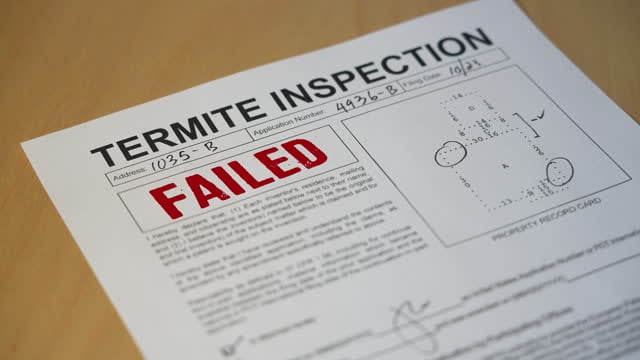Selling a House During Divorce California How to Guide
If your home is a divorce sticking-point, it may help to know you have options. For example, selling before the end of the divorce is the best way to resolve the issue and to preserve tax benefits – before the divorce heats up.
Selling the house in a divorce pending situation is another option, but streamlining the process is advised, and a real estate investor can help you with that.
Finally, if remaining in your home until your children move out is a priority, one of you can buy the other out – or you can continue owning the home together in the interim.
Table of Contents
Selling a house during divorce California guide
Selling a house in divorce situations can make a complicated legal matter that much more so. You can sell your house during a divorce, but family law in California is clear, and it requires you to obtain the court’s permission before selling your home.
If you and your divorcing spouse are in complete agreement on the matter of selling, however, the court is very likely to approve the sale. A common reason for the court to rule on a home sale prior to the final divorce decree is if your house is at risk of being lost through foreclosure. If you need to sell your home during divorce proceedings, caution is well advised.
Can I sell my house during a divorce?
Yes, you can sell your house during a divorce, but you’ll need to keep California’s divorce laws in mind as you proceed. Selling the house in a divorce is guided by California’s laws related to the division of community property. Generally, the marital home is considered community property – or a marital asset – which, in California, must be divided evenly between the two spouses in the event of divorce.
When it comes to selling a home during a divorce, following the letter of the law is critical. If you and your spouse are willing to enter a written and signed agreement about the sale and are committed to splitting the proceeds evenly between the two of you, you can sell your house while you’re divorcing.
An important step in selling the house, however, is working closely with your respective family law attorneys to ensure that you remain within the parameters of the law.
Can I force the sale of my house in a divorce?
You can attempt to force the sale of your home in a divorce, but – because your divorcing spouse is not on board – you will need to take the matter up in court prior to putting the house on the market. Selling a house during a divorce in California involves complex laws that make working with a divorce attorney who helps you determine the best path forward an excellent plan.
Do you have to sell your house in a divorce?
Sometimes we are asked “can I be forced to sell my house in a divorce?”, and the answer is yes, under highly specific circumstances, you can. The court will likely, however, only be moved to force a sell in relation to financial reasons, such as for covering divorce-related legal fees, but generally, you can’t be forced to sell your house in a California divorce unless your spouse obtains a court order that compels you to do so.
If your house is in danger of foreclosure, for example, the court may issue an order forcing a sale that you will be required to follow. It’s important to know, however, that California courts need a compelling reason for taking drastic action such as this.
Should we sell the house before or after divorce?
Should sell the house before or after divorce? Well, it is complicated for a variety of reasons. Your family home almost certainly belongs to both of you, which means neither of you can sell it before or during divorce unless the other spouse wants the same thing – or the court intervenes.
If you are considering whether to sell house first or divorce first, it’s important to carefully consider your options and make the choice that’s right for you and your children moving forward.
Selling property before divorce settlement
Selling the house before divorce is generally considered the easiest way to sell and the best option, but it requires teamwork on the part of you and your spouse, which is something that may be in short supply in the lead up to divorce.
Selling property during separation or prior to divorce still requires cooperation on the part of both of you, but if you’re going to sell the house at some point anyway, doing so at this juncture comes with significant advantages.
California has exacting property tax laws that include capital gains tax. If you sell your home prior to divorce, the cap for not paying capital gains tax on any profit made is twice what it would be if you waited to sell the house on your own post-divorce – when the cap will be set for a single person rather than for a married couple.
There are also residence requirements that must be met to avoid capital gains tax, including that the home must have been your primary residence for at least two years.
In addition to tax advantages, selling your home prior to divorce can bolster your ability to obtain a fair market value. Once you file for divorce, it becomes a matter of public record, and you can count on opportunistic buyers being well aware that divorce often signals a need to sell quickly, which can affect the price for your home.
A downside to putting your house on the market prior to divorce is that it makes the matter far more final, and if you are on the fence about selling your family home, it can take an emotional toll. There is also the matter of where you and your children will live while your divorce is pending, which can leave you feeling adrift just when you’re about to embark on one of life’s most difficult transitions.
Selling house during divorce
Selling the house during divorce may not be the best way to go, but sometimes, it’s a necessity. If selling property during divorce proceedings is necessary to keep the home out of foreclosure or if you need the cash flow in order to pay the bills or legal expenses while your divorce proceeds, selling your home before your divorce is finalized may be your best option.
On the bright side, selling at this stage ensures that your tax exposure is more limited than it would be if you were single – as long as you qualify in terms of residency requirements.
Because divorce filings are a matter of public information, the value of the home can be affected. Regardless of what your house is worth, buyers recognize that the sale of a home during divorce is generally inspired by financial need, and their offers will very likely reflect this fact.
It can’t be overemphasized that divorce comes with a heavy emotional burden, which can be difficult enough to endure without the added stress of selling your family home at the same time. Our homes tend to signify comfort and safety, and walking away from this port in a storm can be more emotionally challenging than you may have bargained for.
Finally, the sale of a house during a divorce requires you and your spouse to come to an agreement on the matter and to ask the court for permission to proceed. Many divorcing couples have a difficult time finding common ground on just about every topic, and this mindset can make selling your home during divorce more challenging still.
Selling house after divorce
Selling the house after divorce can come with distinct advantages. If the court deemed the home your separate property in the divorce, selling it becomes your sole decision. You won’t need to formulate a plan with your ex, and you can proceed on your own terms.
For example, if you want to keep the house as your family home – in an effort not to uproot your children at this difficult juncture in their lives – it’s your right to do so as long as you can handle the mortgage.
If the court orders you to sell the house post-divorce in order to divide the proceeds, it’s a different matter. You’ll need to proceed with the house sale in unison with your ex, and the capital gains tax advantage continues to apply – the cap before capital gains taxes are owed is double what it would be if you sold the house on your own.
How to sell a house during a divorce in California
If you recognize that you need to sell your house during a divorce, you should know that you have options. For example, if you and your divorcing spouse are in agreement on the matter, you can speed up and simplify the process by selling to one of the reputable companies that buy homes for cash in Southern California.
Other options include one of you selling your interest in the home to the other, one of you taking another martial asset to offset your community property interest in the home equity, or both of you continuing to own the home together while one of you lives in the house with your children. Better understanding your options can help you make the right choice for you.
1. Sell to real estate investors
An excellent option if you need to sell your house during divorce is selling to cash home buyers in Southern California who make the process as painless as possible by eliminating the need for all the following:
- Making repairs
- Sprucing up the place in order to sell
- Hiring an appraiser to determine the value of the house
- Working with a real estate agent
- Staging the house and keeping it ready for viewings while you live in the home
- Scheduling, preparing for, and vacating your home for open houses and viewings
- Coming to a mutual agreement with your spouse regarding acceptance of an offer
- Waiting on the buyer’s financing
At SoCal Home Buyers, we appreciate your need to sell your home during divorce, and we are well prepared to make you a fair cash offer that is based on our in-house inspector’s tour of your home, which we can schedule whenever is convenient for you. All it takes is a call.
2. California divorce home buyout by a spouse
Wondering how to keep your house in a divorce? It may be possible. If you and your spouse don’t want to sell the property, there is the option of one spouse coming up with a buyout for the other’s equity in the home.
For example, if your goal is to stay in the house and you can’t afford to buy your spouse out directly, you may be able to buy out them out with a community property other than your home – if your estate is large enough.
Who gets the house in a divorce in California depends upon a large range of factors that can include whether or not you have a prenup, the divorce agreement you create, the matter of who wants the house, the matter of who wants to stay in the home, and beyond.
These decisions are often made between the divorcing couple, but they can also be determined by the family court. If one of you is awarded the house at divorce trial, the option of selling a house after a divorce is theirs, and they can proceed according to their own priorities.
3. Continue to co-own the home together
Another option that many couples with minor children choose is continuing to co-own the house together. This works well if one of the spouses wants to continue living in the house while the children are still at home, which can help make the divorce and it’s aftermath less jarring for them.
One spouse may live in the home full-time while the other has visitation with the kids after buying a new place. Some parents, however, allow the children to live in the home while each parent moves back and forth, which is referred to as nesting.
When the time comes and the home is sold, you’ll still be able – as co-owners – to take advantage of the higher capital gains tax limit – but only if both of you satisfy the ownership and use requirements.
How does a court ordered sale of house in divorce in California affect matters?
If the matter of selling your house during a divorce becomes a court order, it means you’ll need to sell the home quickly, which can be a tall order in the midst of a divorce.
Need help selling a house during divorce in California?
SoCal Home Buyers understands the dilemmas related to selling a house in divorce situations and in response, we offer a smooth purchase process that can put this difficult matter behind you without the hassle, expense, and time commitment of working with a real estate agent. In fact, we can help you get things squared away with the following four easy steps:
- Give us a call at 951-331-3844—or fill out the short form below—to request your fair cash offer.
- Await our prompt response to discuss your property in greater detail and schedule a one-time inspection that allows us to offer the highest amount possible.
- At the time of the inspection, our in-house inspector will quote you a fair cash offer, and if you’re on board, you can consider your home sold!
- Choose your closing date, and leave the rest to us. You can choose payment via check or wire transfer. It simply doesn’t get any easier.
FAQs
How long do you have to sell a house after divorce?
How long you have to sell your home after divorce depends upon the situation at hand. If the sale is court ordered, you’ll need to sell in accordance with the specifics laid out by the court. If not, you can sell according to your own priorities.
Do I have to sell my house in a divorce?
You don’t necessarily have to sell your house in a divorce – unless the court orders you to. For example, your home may need to be sold in order to cover expenses or to avoid foreclosure. Barring a court order, you can’t be compelled to put your home on the market.
What happens if a seller is going through a divorce and is forced to sell a home?
If you’re required to sell your home, you’ll likely need to do so fairly quickly, which makes selling to a real estate investor like SoCal Home Buyers a solid plan. The first step in selling to us is making the call and scheduling an appointment with our in-house inspector.
Can one spouse sell community property without approval from a partner?
No, community property is owned by both spouses equally and neither spouse can sell community property without the written consent of the other. If you’re going through a divorce, you’ll also need the court’s approval before proceeding with a sale of community property, such as a house.
Are there any guidelines on how to stop a spouse from selling property without your approval?
Even if your home is in your spouse’s name alone, it is almost certainly community property, which means that both of you must agree to its sale. As such, you’ll need to address the fact that your spouse is attempting to sell the house with the divorce court.










